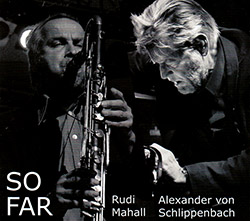
Pianist Alexander von Schlippenbach and clarinetist Rudi Mahall have been exploring the music of jazz and free improvisation for decades in their own bands or together in Globe Unity Orchestra; here they are heard in their essential element as a duo, pushing their music in rapid runs and elegant and emotional moments with imposing technique and authoritative confidence.
In Stock
Quantity in Basket: None
Log In to use our Wish List
Shipping Weight: 3.00 units
EU & UK Customers:
Discogs.com can handle your VAT payments
So please order through Discogs
Sample The Album:
Rudi Mahall-bass clarinet, clarinet
Alexander von Schlippenbach-piano
Click an artist name above to see in-stock items for that artist.
UPC: 5902249000863
Label: Relative Pitch
Catalog ID: RPR1067
Squidco Product Code: 25654
Format: CD
Condition: New
Released: 2018
Country: USA
Packaging: Digipack
Recorded on July 31st, 2017, by Christian Betz.
""All jazz is free": The origin of this statement - self evident or provocative, depending on one's point of view - has proved very resistant to research thus far. The internet throws up many references to the phrase being used as a title for a solo piano piece by Alex von Schlippenbach. This gets us nowhere since Alex has for a good while - and mistakenly - attributed the assertion to me. I, in turn, am fairly sure that I read it in one of the interviews in Art Taylor's "Notes and Tones" but, not owning the book myself, I asked Paul Lytton to track it down in his copy. So far no luck.
Thinking about the ways in which the statement can be interpreted and making the assumption that it was coined by a player of theme and variations changes based music, working backwards in time we come to the descriptor "Time, no Changes" - which can be used equally well for the music of the classic Ornette Coleman Quartet or to the Miles Davis Quintet with WS, HH, RC and TW, in which tempo is maintained, accent patterns and phrasing relate to the tempo, but note choice is open to the needs of a line in development. So called modal jazz is often clearly a species of "Time, no Changes".
Classic playing with fixed choruses over changes has nevertheless the freedom to re-harmonise, to play chromatic extensions of the basic chord types; chord names themselves will have implications and freedoms in scale choice (Lydian concept etc)... Steve Coleman's eloquent writing makes the case for the rhythmic constructions of bebop as being more significant stylistic markers than its harmonic language - note choice - citing Art Tatum, Louis Armstrong playing flat 9ths and so on.
"No Time, No Changes", perhaps the final frontier, was ushered in by the Taylor/ Lyons / Murray and Giuffre/Bley/Swallow trios in the early 60s of the 20th century. Earlier composer Arnold S. had said something to the effect that "atonal" was a nonsense term meaning simply no tone (pitch). By the same token, "No Time, No Changes" should be understood as a shorthand expression to describe playing without pre-given structuring devices in advance of the moment of performance, leading to an open field of variations on variations.
Having established that given this historical perspective "All Jazz is - and always has been - Free", we are left with just the need to define what "jazz" is! Where exactly does this brief summary of evolutionary trends lead us in formulating such a definition?
AvS has retained an affection for the "j-word", insisting that there remains some however hard to define attitude which distinguishes his approach from the totally open improvisation often associated with other European developments - reaching perhaps a definitional "terminus of the absurd" with negation of all nameable qualities in the notion of the "non idiomatic". Listening to the music of Schlippenbach and Mahall there is clear use of all the aforementioned structuring devices and methods. Fragments of Monk and Dolphy come to the foreground and the melt back into in a stream of consciousness which privileges the last vestiges of the jazz tradition: a personal sound - each player being clearly a recognisable individual - and an urgency to forward momentum.
If "All Jazz is Free" it must be conceded that all freedom is relative. The discussion of the difference between "Relative" and "Absolute" must be left for another occasion."-Evan Parker October 2017
Artist Biographies
"Rudi Mahall (born 1966 in Nürnberg, Germany) is a contemporary jazz bass clarinetist.
While studying classical clarinet, Mahall shifted towards contemporary music, improvisation and jazz. He is, or was a member of following bands: Avantgardeband Die Hartmann 8, Der Rote Bereich (initially comprehending Frank Möbus, Marty Cook, Jim Black und Henning Sievert), the Trio Tiefe töne für Augen und Ohren (with Sievert and Bill Elgart), Carlos Bicas Azul and Die Enttäuschung (amongst others with Axel Dörner, Jan Roder). He carried out several projects and published CDs with Aki Takase, about the work of Eric Dolphy and others. Mahall participated to Alexander von Schlippenbach's recording of the complete works of Thelonious Monk, published by a prestigious Swiss label, and he is a member of the Globe Unity Orchestra. Moreover, he performed with Conny Bauer, Lee Konitz, Barry Guy, Karl Berger, Paul Lovens, Sven-Åke Johansson, Radu Malfatti, Ed Schuller, Ray Anderson, Kenny Wheeler, Hannes Bauer and many others.
Mahall performed at the Free Music Festival Jazz à Mulhouse in 2008, at the Moers Festival, the JazzFest Berlin, the Leverkusener Jazztage and jazz festivals in New York City, Amsterdam, München, Würzburg, Nürnberg, and he toured in Portugal, southern and eastern Africa."
-Wikipedia (https://en.wikipedia.org/wiki/Rudi_Mahall)3/31/2025
Have a better biography or biography source? Please Contact Us so that we can update this biography.
"One of Europe's premier free jazz bandleaders, pianist Alexander von Schlippenbach's music mixes free and contemporary classical elements, with his slashing solos often the link between the two in his compositions. Schlippenbach formed The Globe Unity Orchestra in 1966 to perform the piece"Globe Unity, which had been commissioned by the Berliner Jazztage.
He remained involved with the orchestra into the '80s. Schlippenbach began taking lessons at eight, and studied at the Staatliche Hochschule for Musik in Cologne with composers Bernd Alois Zimmermann and Rudolf Petzold. He played with Gunther Hampel in 1963, and was in Manfred Schoof's quintet from 1964 to 1967.Schlippenbach began heading various bands after 1967, among them 1970 trio with Evan Parker and Paul Lovens and a duo with Sven-Ake Johansson which they co-formed in 1976. Schlippenbach has also given many solos performances. In the late '80s, he formed the Berlin Contemporary Jazz Orchestra,which has featured a number ofesteemed European avant-garde jazz musicians including Evan Parker, Paul Lovens, KennyWheeler, Misha Mengelberg and Aki Takase. During the 90`s Duo work with Tony Oxley, Sam Rivers and Aki Takase. 1999 started performance and radiorecording of Thelonius Monks complete works, (all the compositions) with Rudi Mahall and his group "Die Enttäuschung"."
-Alexander von Schlippenbach Website (http://www.avschlippenbach.com/)3/31/2025
Have a better biography or biography source? Please Contact Us so that we can update this biography.
Track Listing:
1. All Jazz Is Free 7:32
2. Barrel 3:40
3. Knockemstiff Can Can 5:34
4. Chase 3:46
5. Boiling Desire 4:20
6. Folk Ingredients 2:48
7. All In 8:54
8. Straight Ahead 4:21
9. Side Stroke 1:40
10. The Trap 2:44
11. Apostrophy 4:15
Improvised Music
Jazz
Free Improvisation
European Improvisation, Composition and Experimental Forms
Duo Recordings
Piano & Keyboards
Recordings by or featuring Reed & Wind Players
Schlippenbach
Staff Picks & Recommended Items
Top Sellers for 2018 by Customer Sales
Search for other titles on the label:
Relative Pitch.


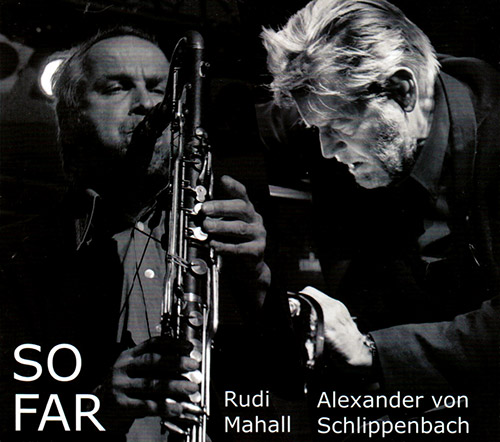
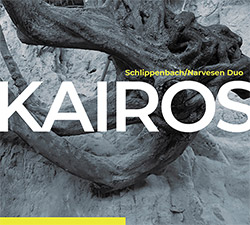




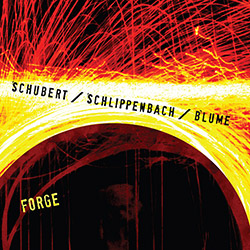
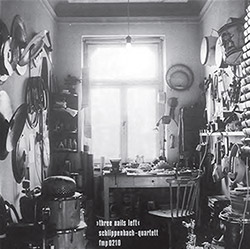
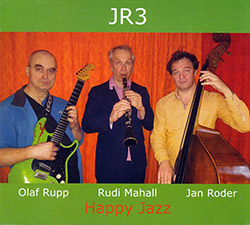
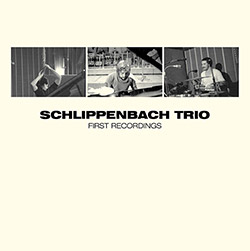


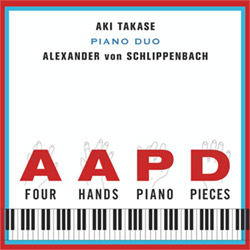
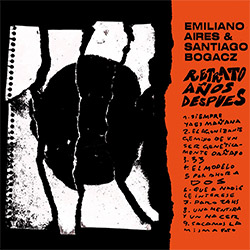

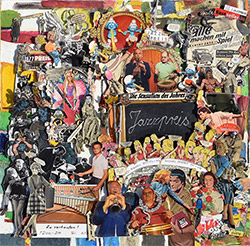




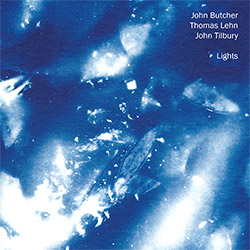
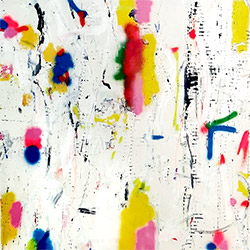

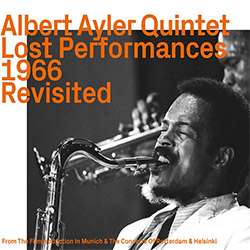
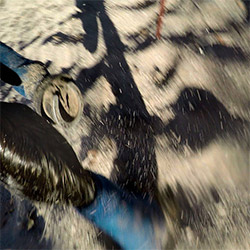
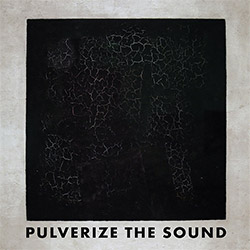
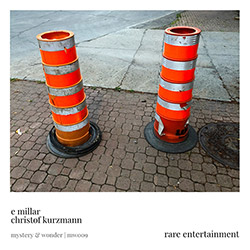

![Rodrigues, Ernesto / Nuno Torres / Guilherme Rodrigues: Whispers In The Moonlight - In Seven Movements [2CDs]](https://www.teuthida.com/productImages/misc4/35765.jpg)



![Cocks, Laura: FATHM [VINYL]](https://www.teuthida.com/productImages/misc4/36055.jpg)










![Ackerley / Prymek / Turner: All Hope With Sleeping Minds [CASSETTE]](https://www.teuthida.com/productImages/misc4/35950.jpg)
![Myers, David Lee : Tin Drop Tear [BOOK w/ DOWNLOAD]](https://www.teuthida.com/productImages/misc4/36030.jpg)



![Schindler, Udo / Sandy Ewen / Damon Smith: Munich Sound Studies Vols. 4, 5 & 6 [3 CDs]](https://www.teuthida.com/productImages/misc4/35966.jpg)






![Turbulence Orchestra & Sub-Units: Smear Out the Difficulties (Double Live) [2 CDs]](https://www.teuthida.com/productImages/misc4/36048.jpg)
![Perelman, Ivo / Tyshawn Sorey: Paralell Aesthetics [2 CDs]](https://www.teuthida.com/productImages/misc4/35871.jpg)


![Sjostrom, Harri: SoundScapes #4 Festival Berlin 2023 [3 CDs]](https://www.teuthida.com/productImages/misc4/35874.jpg)



![Glenn, Jordan: Flustered [CASSETTE]](https://www.teuthida.com/productImages/misc4/35948.jpg)


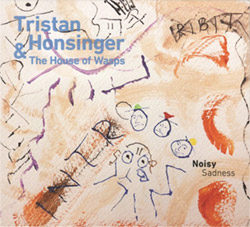
![Lindorff-Ellery, Evan: Church Recordings from Monhegan [CASSETTE]](https://www.teuthida.com/productImages/misc4/35949.jpg)
![Schindler, Udo / Werner Dafeldecker / Gunnar Geisse: Travelling Sound Images - Cognitive Transfers [Trio]](https://www.teuthida.com/productImages/misc4/35767.jpg)

![Egberth, Dennis: The Dennis Egberth Dynasty [VINYL]](https://www.teuthida.com/productImages/misc4/35549.jpg)


![Schindler, Udo / Rieko Okuda / Eric Zwang Eriksson: Disturbed Terrains [2 CDs]](https://www.teuthida.com/productImages/misc4/35330.jpg)






![Olencki, Weston : Pearls Ground Down To Powder [VINYL]](https://www.teuthida.com/productImages/misc4/35956.jpg)
![Myers, David Lee: Oculus [2CDs]](https://www.teuthida.com/productImages/misc4/35857.jpg)


![dustsceawung: dustsceawung [CASSETTE w/ Download]](https://www.teuthida.com/productImages/misc4/35753.jpg)




![Halls of the Machine: Atmospheres For Lovers And Sleepers [CASSETTE w/ DOWNLOAD]](https://www.teuthida.com/productImages/misc4/35806.jpg)



![AHC (Alexander Cooper): Lase [2 CDs]](https://www.teuthida.com/productImages/misc4/35754.jpg)



![Fagaschinski, Kai / Yan Jun : Graveyard Processions [VINYL w/ DOWNLOAD]](https://www.teuthida.com/productImages/misc4/35474.jpg)
![Brant, Cody / Carl Kruger: Smoke Detail [CASSETTE w/ DOWNLOAD]](https://www.teuthida.com/productImages/misc4/35551.jpg)








![Zorn, John / JACK Quartet: The Complete String Quartets [2 CDs]](https://www.teuthida.com/productImages/misc4/35609.jpg)

![Lonsdale, Eden: Dawnings [2 CDs]](https://www.teuthida.com/productImages/misc4/35480.jpg)







![Sanna, Claudio: Compositori Sardi Contemporanei II [2 CDs]](https://www.teuthida.com/productImages/misc4/35317.jpg)







![Zurria, Manuel: Fame di Vento [3 CDs]](https://www.teuthida.com/productImages/misc4/35167.jpg)

![Granberg, Magnus / Nattens Inbrott / Skogen: Holde Traume, Kehret Wieder! [2 CDs]](https://www.teuthida.com/productImages/misc4/35038.jpg)

![Electric Bird Noise / Derek Roddy: 8-10-22 [CD EP]](https://www.teuthida.com/productImages/misc4/35970.jpg)








![Elephant9 : Mythical River [VINYL]](https://www.teuthida.com/productImages/misc4/34624.jpg)



![Elephant9 with Terje Rypdal: Catching Fire [VINYL 2 LPs]](https://www.teuthida.com/productImages/misc4/35355.jpg)
![Deerlady (Obomsawin, Mali / Magdalena Abrego): Greatest Hits [VINYL]](https://www.teuthida.com/productImages/misc4/34876.jpg)







![Surplus 1980: Illusion of Consistency [CD]](https://www.teuthida.com/productImages/misc4/35069.jpg)
![Staiano, Moe: Away Towards the Light [VINYL + DOWNLOAD]](https://www.teuthida.com/productImages/misc4/35037.jpg)



![Caveira (Gomes / Sousa / Abras / Ferrandini): Ficar Vivo [VINYL]](https://www.teuthida.com/productImages/misc4/34643.jpg)
![Coley, Byron: Dating Tips for Touring Bands [VINYL]](https://www.teuthida.com/productImages/misc4/17906.jpg)

![Lost Kisses: My Life is Sad & Funny [DVD]](https://www.teuthida.com/productImages/misc4/lostKissesDVD.jpg)